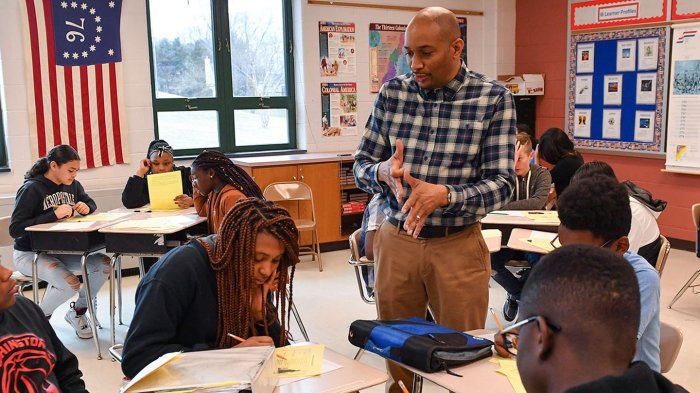All in day’s work icivics – iCivics’ motto, “all in a day’s work,” captures the essence of civic engagement, a concept that emphasizes the shared responsibility of all citizens to contribute to the well-being of their communities. Understanding this concept is crucial for fostering a vibrant and engaged civic life.
The term “all in a day’s work” signifies the willingness to go above and beyond personal interests to serve the greater good. It encompasses a wide range of roles and responsibilities, from volunteering in local organizations to advocating for public policies.
Introduction: All In Day’s Work Icivics
The concept of “all in a day’s work” is central to the mission of iCivics. It encapsulates the idea that civic education is not a one-time event but an ongoing process that should be integrated into all aspects of our lives.
By understanding this concept, we can better appreciate the importance of civic education and its role in creating an informed and engaged citizenry.
In the context of civic education, “all in a day’s work” means that we should constantly be seeking opportunities to learn about and engage with our government and our communities. This can take many forms, from attending town hall meetings to volunteering for local organizations to simply staying informed about current events.
By making civic education a part of our daily lives, we can help to ensure that our democracy is strong and responsive to the needs of its citizens.
Understanding the Concept
The phrase “all in a day’s work” captures the idea that certain tasks or challenges are simply part of one’s job or responsibilities. In the context of iCivics, it refers to the diverse range of activities and efforts involved in promoting civic engagement.
Civic engagement encompasses a wide spectrum of roles and responsibilities, including:
Roles and Responsibilities
- Educating citizens about their rights and responsibilities.
- Encouraging participation in the electoral process.
- Facilitating community involvement in decision-making.
- Advocating for policies that support civic participation.
li>Promoting dialogue and understanding between diverse perspectives.
Real-World Examples
The concept of “all in a day’s work” is evident in numerous real-world situations:
- A teacher preparing lesson plans, grading assignments, and mentoring students.
- A doctor providing medical care, conducting research, and educating patients.
- A social worker assisting clients, advocating for their rights, and connecting them with resources.
- A community organizer mobilizing residents, facilitating meetings, and addressing local issues.
- A volunteer spending time at a soup kitchen, tutoring students, or cleaning up a local park.
Importance of the Concept

Understanding the concept of “all in a day’s work” is crucial in civic engagement. It emphasizes the collective responsibility of citizens to contribute to the well-being of their communities. By fostering a sense of shared ownership, it encourages active participation and promotes a sense of purpose and belonging.
All in a Day’s Work iCivics is an engaging and interactive learning experience that helps students understand the complexities of government. By exploring different perspectives, students can develop a deeper understanding of the issues facing our country. For example, one topic that students may encounter is the question of whether or not CSO is polar or nonpolar.
This article provides a comprehensive analysis of the topic, offering insights that can enrich students’ understanding of chemistry and the broader field of science. All in a Day’s Work iCivics provides a unique platform for students to explore these and other complex topics in a hands-on and engaging way.
Benefits of Shared Responsibility
When citizens embrace the idea of “all in a day’s work,” they recognize that civic duties are not solely the responsibility of elected officials or government agencies. It cultivates a sense of ownership and accountability, leading to a more engaged and empowered citizenry.
- Increased civic participation: Shared responsibility fosters a sense of obligation, encouraging citizens to participate in various forms of civic engagement, such as volunteering, attending community meetings, and advocating for issues they care about.
- Improved problem-solving: By working together, citizens can collectively identify and address community challenges. Shared responsibility promotes collaboration and consensus-building, leading to more effective solutions.
- Enhanced community cohesion: When citizens feel invested in their community, they are more likely to develop a sense of belonging and connection. Shared responsibility strengthens social bonds and creates a more cohesive and supportive community.
Positive Outcomes for Communities
Embracing the concept of “all in a day’s work” can lead to numerous positive outcomes for communities:
- Improved public spaces: Citizens can contribute to maintaining and improving public spaces, such as parks, libraries, and community centers, by volunteering for cleanup efforts or participating in neighborhood beautification projects.
- Increased civic amenities: Shared responsibility encourages citizens to advocate for and support the development of civic amenities, such as affordable housing, transportation options, and healthcare facilities, that enhance the quality of life for all residents.
- Stronger local economies: By supporting local businesses and entrepreneurs, citizens can contribute to the economic vitality of their communities. Shared responsibility promotes job creation and economic growth, benefiting all residents.
Applying the Concept

The concept of “all in a day’s work” can be applied to our daily lives in many practical ways. By embracing this mindset, we can approach challenges with a positive attitude and a willingness to contribute to the greater good.
One way to apply this concept is to focus on the impact of our actions. Whether it’s volunteering our time, recycling, or simply being kind to others, every small act can make a difference. By considering the ripple effects of our choices, we can strive to create a more positive and just society.
Making a Difference in Our Communities, All in day’s work icivics
Individuals and organizations can play a vital role in making a difference in their communities. By identifying local needs and working together, we can create lasting change. For example, organizing a neighborhood cleanup, supporting local businesses, or mentoring young people are all ways to contribute to the well-being of our communities.
By embracing the concept of “all in a day’s work,” we can recognize that civic engagement is not just a responsibility but an opportunity to make a meaningful impact on the world around us.
Examples and Case Studies
The concept of “all in a day’s work” is not just a theoretical idea; it is a reality that has been demonstrated countless times by individuals and organizations worldwide. Let’s explore some real-life examples and case studies that showcase the impact of this concept in action.
Grassroots Activism
Grassroots activism is a prime example of how “all in a day’s work” can lead to significant change. Take the case of the Flint water crisis, where residents banded together to raise awareness and demand action from local authorities. Through persistent efforts and collaboration, they successfully pressured the government to address the contaminated water supply, ultimately improving the health and well-being of the community.
Corporate Social Responsibility
Many businesses have embraced the idea of “all in a day’s work” through corporate social responsibility (CSR) initiatives. For instance, Patagonia, a renowned outdoor apparel company, has long been committed to environmental sustainability. They have implemented various programs to reduce their carbon footprint, protect natural resources, and support local communities, demonstrating that businesses can be a force for good beyond their core operations.
Volunteerism
Volunteerism is a powerful way to put the concept of “all in a day’s work” into practice. Countless individuals dedicate their time and effort to supporting various causes, from mentoring underprivileged youth to providing disaster relief. These volunteers embody the spirit of service and make a tangible difference in their communities.
Conclusion
In summary, the concept of “all in a day’s work” encompasses the idea that individuals have a responsibility to contribute to the well-being of their communities, regardless of their formal roles or positions. By embracing this principle, we can create a more just, equitable, and compassionate society.
It is crucial to continue exploring ways to make a difference, both big and small. From volunteering our time to advocating for important causes, there are countless opportunities to engage in civic life and create positive change.
Call to Action
We encourage you to get involved in civic engagement in whatever way resonates with you. Attend community meetings, support local organizations, and participate in the electoral process. By working together, we can build a stronger, more vibrant, and more just society for all.
FAQ
What is the significance of “all in a day’s work” in civic engagement?
It emphasizes the shared responsibility of all citizens to contribute to the well-being of their communities, fostering a sense of ownership and accountability.
How can individuals apply the “all in a day’s work” concept in their daily lives?
By volunteering in local organizations, advocating for public policies, participating in community events, and simply being informed and engaged citizens.